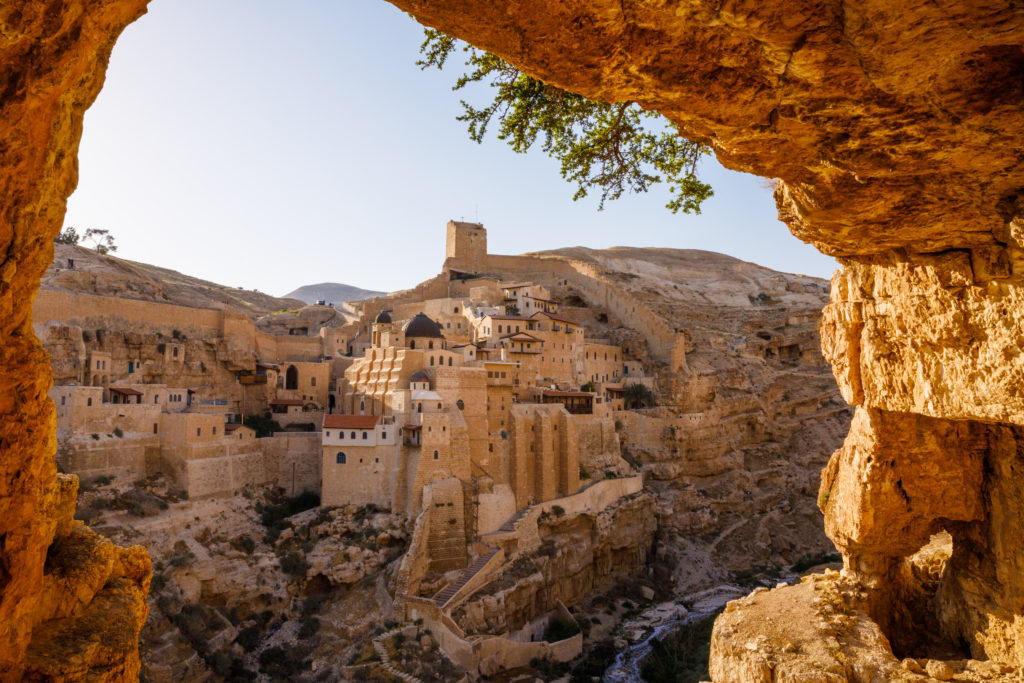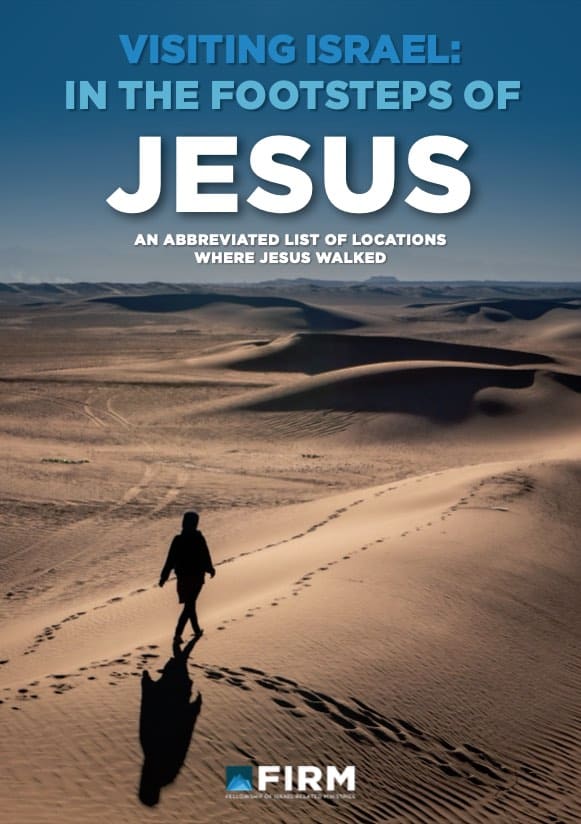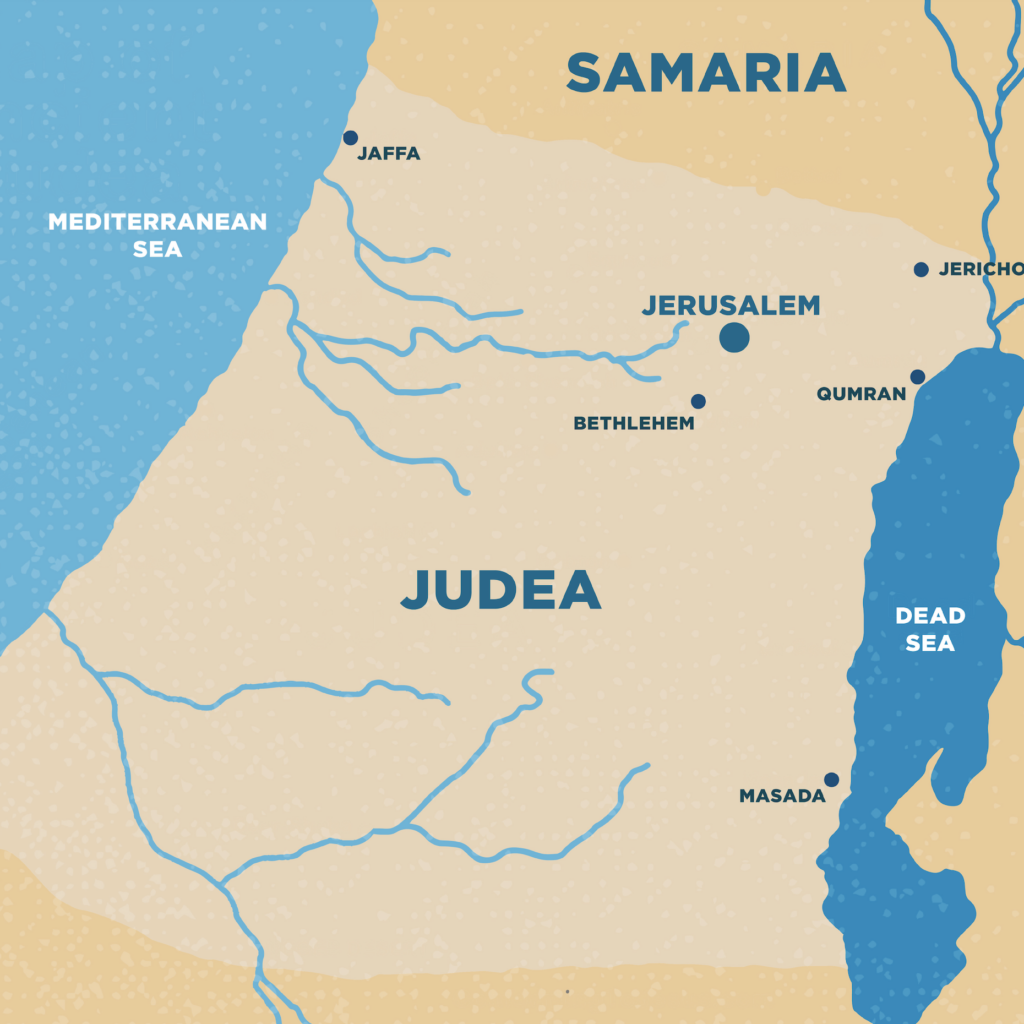Jerusalem, Judea, and Samaria
“You will be my witnesses in Jerusalem and in all Judea and Samaria, and to the end of the earth” – these are the last documented words Jesus spoke to his disciples before He ascended into heaven (Acts 1:8).
The Messiah departs from the earth with a promise and a charge, which also becomes the outline of the rest of the book of Acts.
There are two ways to understand and apply His words, these “marching orders”, so to speak. We can interpret Acts 1:8 literally, and we can also interpret it figuratively.
Literal Surroundings
In the literal interpretation, we apply Jesus’ words in physical sense – in terms of distance. It is a charge to share the Gospel with our city, which includes our neighbors and our local community.
Then, we look to the people in the wider region where we reside, the country we live in. Finally, we see a global perspective, as we continue onto the nations of the world.
This would make sense since the disciples were given direction to take the Gospel to:
- the city of Jerusalem (where they already were),
- to the familiar region of Judea that surrounded Jerusalem,
- to the geographically further and culturally different region of Samaria,
- and to the unfamiliar, far ends of the earth.
To further grasp the geographical intention of Jesus’ words, it’s helpful to view a map of the region in question while studying this verse.
Figurative Interpretation However, Acts 1:8 can also be interpreted in a more symbolic way.
Considering the various levels of intimacy we have with other people, the charge to share the Gospel could be applied to different relationships in our lives.
We begin with the immediate sphere of influence, which are our family and close friends. Then we have acquaintances outside of our immediate comfort zone. And finally, those who are culturally and/or socially different than us.

Who is the Message for?
There is some overlap between these two interpretations. And they are definitely not mutually exclusive.
Jesus wanted a witness to proclaim the Gospel in the city where He was executed (Jerusalem).
But He also wanted the Good News to reach the land where His ministry was rejected (Judea), and where the disciples felt out of place and looked down on people (Samaria).
Finally, He wanted to show the Father to complete strangers of the Hebrews – who lived at the ends of the earth.
Would it be a stretch to say that Jesus likewise desires for us to go around both the familiar territory, as well as where we feel foreign and uncomfortable?
Consider the undesirable, tough, dangerous places. Think of the people who are different from us, as well as the ones we some consider to be outcast.
Does the beggar on the street corner come to mind? Perhaps the city councilmen, or a businessman? What about the coworker who, if we’re honest, tends to rub us the wrong way?
What about the people at a new age festival? Or those on the opposite side of the political aisle? That last one may sting a little, doesn’t it.
The fact is, God has charged us, His disciples, with sharing the Gospel with precisely these people.
Going Out of Jerusalem
Bear in mind that by the end of the book of Acts, we find that Paul has preached the Gospel to Jews and God-fearers across borders. He spoke in synagogues, to Greek pagans on Mars Hill (Acts 17:16-34). Even to the Roman governors and to a Jewish king in Israel (Acts 24:24-27; 25:1-26:32).
But he also preached to island natives of Malta (Acts 28:1-10), and sought to witness to Caesar in Rome (Acts 28:19).
The book of Acts emphasizes the universal message of redemption. It stresses that deliverance and salvation is offered to all equally, without distinction. The Gospel of Jesus does not take human divisions, prejudices or fears into consideration.
How is this possible to serve like that, without discrimination or judgement?
It’s understandable that this task might seem daunting from our human perspective. Nevertheless, Jesus makes it clear that it is possible by the power of the Holy Spirit. It is His Spirit that empowers us.
We cannot achieve this immense charge in our own humanity. We will, however, experience the presence of the Spirit of God as we follow the instruction to share the Gospel.
Chuck Smith puts it this way, “So was it always to be, the power of the Holy Spirit upon our lives gives us, His church, the power to walk the path and the ability to be what God wants us to be.”
Witnesses of Him in our community, spreading from there to the surrounding communities, going from there to the surrounding territories, and ultimately to the whole world.”
Judea and Samaria Now
As we consider this theme in Acts, that emphasizes the gospel’s relevance to people from every religious background, let us also turn our attention to modern-day Judea and Samara, which is known as the West Bank.
The rights to this controversial plot of land west of the Jordan River have been contested for years. It’s home to about 2.7 million Palestinians and roughly 400,000 Israeli Jews. It is controlled by the Israeli government, though technically overseen by the Palestinian Authority as well.
Many view it as a dangerous area, where Israel’s enemies reside. However, the modern-day reality of Judea and Samaria only adds gravity to the Biblical command given in Acts 1:8.
Regardless of the controversies, possible danger, political and religious differences, the people who live in the West Bank need the glorious message of the Gospel just as much as the couple next door.
To Be a Witness
I recently read a devotional that focused on confessions. One line read, “for the sin which we have committed before you by causeless hatred”. The prayer that follows could be critical as we seek to take Jesus’ words in Acts 1:8 to heart.
We pray to be effective witnesses in our Jerusalem, Judea and Samaria, and to the ends of the earth:
“Fill me with Your love and compassion, even for those that I might deem unlovable, so that I might be a greater reflection of You.”

Visiting Israel: In the Footsteps of Jesus: Free PDF Download
It is quite exciting to think that while touring Israel you are walking on the same land that Jesus did.
Whether it is the reason why you came to Israel or not, it is worth noting which locations were significant to His life and ministry. God chose this piece of land to send His Son to live on earth. Many archeological findings confirm the locations mentioned in the Bible.
Articles Related to Jerusalem, Judea, and Samaria
Estimated reading time: 6 minutes
Bibliography
- Smith, Chuck. “Sermon Notes for Acts 1:8 by Chuck Smith.” Blue Letter Bible. Accessed September 5, 2020. https://www.blueletterbible.org/Comm/smith_chuck/SermonNotes_Act/Act_10.cfm
- Sukkat Shalom Messianic Congregation. “Elul 14.” Sukkat Shalom Messianic Congregation. Accessed September 5, 2020.
http://www.sukkatshalom.us/visit-us/elul-14
